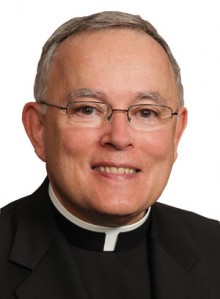On March 17, the U.S. State Department labeled the ongoing murder of Christians by Islamic State (known as ISIS or ISIL, or more derisively as “Daesh”) as genocide. This is only the second time the State Department has issued such a designation, and it’s a sign of the scope of the current crisis.
Middle Eastern Christians have been driven into exile, abducted, beheaded, raped or enslaved by the tens of thousands over the past few years. And while the designation of “genocide” cannot stop or change those crimes, it’s a powerful, official acknowledgement naming the truth of a tragic situation.
Praise for making this public statement happen needs to be shared by groups like the Knights of Columbus, the U.S. bishops, the Hudson Institute’s Center for Religious Freedom, and other determined organizations that pressed Washington leadership and national media to recognize Islamic State’s pattern of religious bigotry, desecration of holy sites and mass blood-letting.
Hatred of Christians and other religious minorities is not “incidental” to Islamic State policy. It is the heart of its policy. And while Islamic State is extreme in its malice, we’d do well to remember that, in general, the record of Christian life in the Middle East has often been a painful one. The brutal treatment of Armenian and other Christians by Turkish authorities a century ago provided the model for the Jewish Holocaust just a few decades later.
[hotblock]
On a local level of course, many Christians and Muslims live in friendship and peace. Muslim-majority nations can vary greatly in their treatment of minority religious groups. Nonetheless, memory is important in creating a more humane future, and anyone interested in the historical facts of Christian life in the region should read the excellent work of Egyptian-born scholar Bat Ye’or, among many others.
As we ready ourselves for the holiest week of the year – the week when God’s Son sacrificed his own life on our behalf – our focus needs to be, at least in part this year, on supporting and defending our Christian family of faith in the Middle East, where the Gospel of Jesus Christ was first preached.
We need to honor the witness of heroic Christian martyrs who have died in recent years at the hands of extremists. Love cannot be separated from truth. And love is never a legitimate alibi for a lack of courage in speaking the truth on behalf of fellow Christians.
Anyone with any illusions about the cost of Christian discipleship today needs to read the coverage here by reporter Joan Desmond.
Please remember these martyred Missionaries of Charity in your prayers in the coming days of Holy Week, along with the many other thousands of suffering Christians in the Middle East.
PREVIOUS: Salvation comes through the cross, not a magic wand, pope says
NEXT: The Stations of the Cross



Thank You for telling us about this. I have forwarded it to many. You are a great Bishop. I will pray that there will be an end to this kind of things. Love & prayers Paul
Thanks for this article, which I printed for others to read. I cried reading about these devoted nuns who died for their faith.
Kudos to the Knights of Columbus and the other organizations that spearheaded the issuing of this designation of genocide.